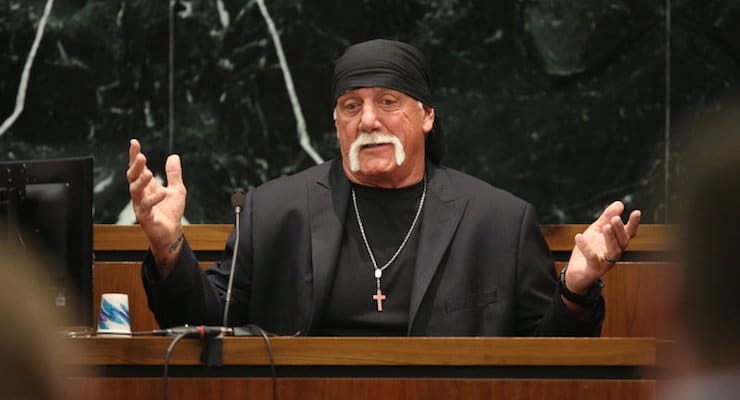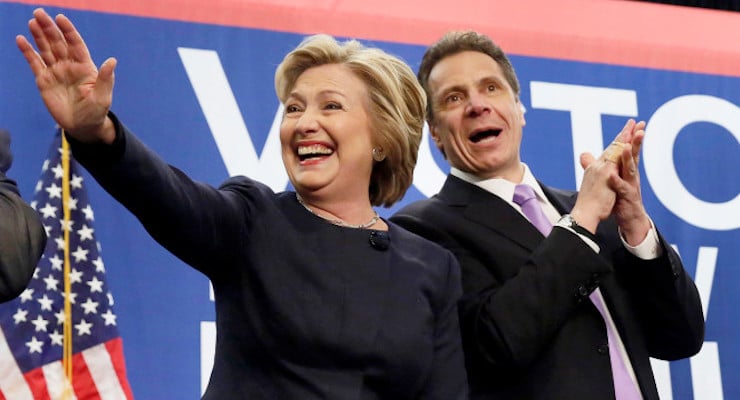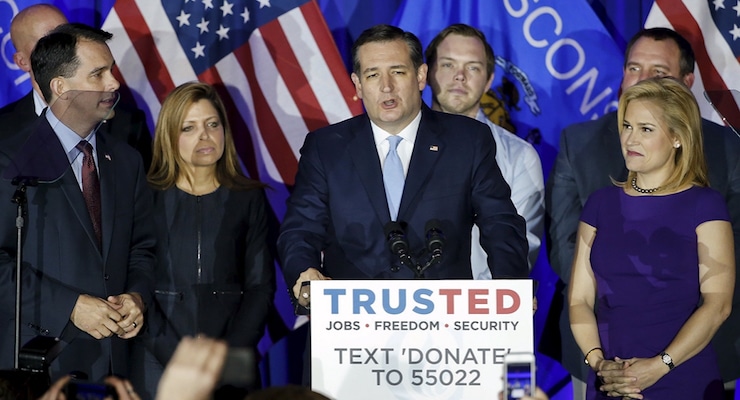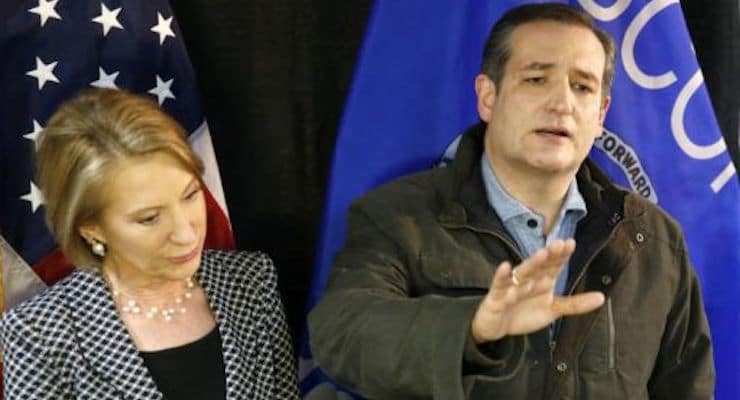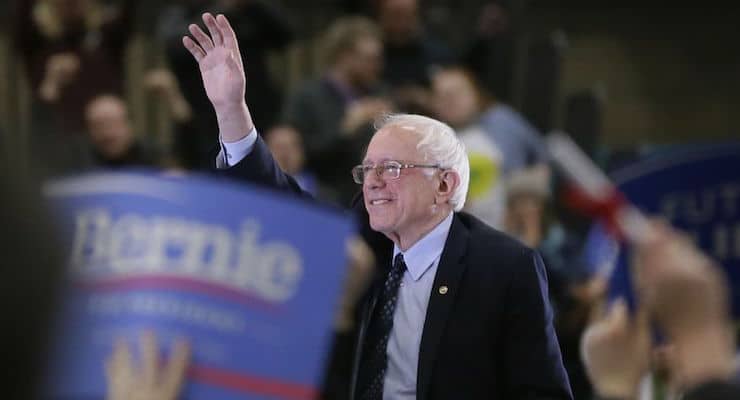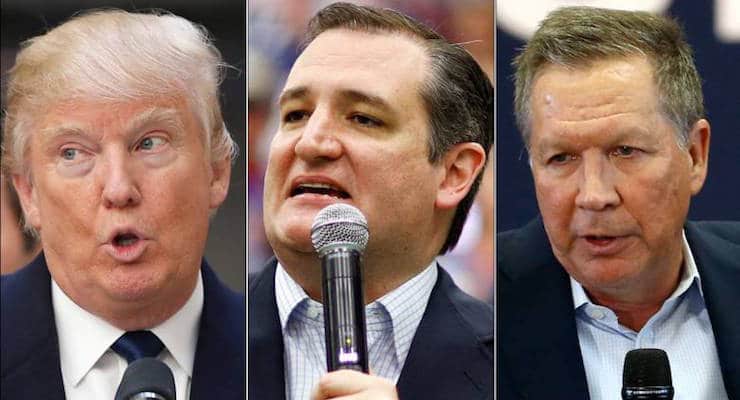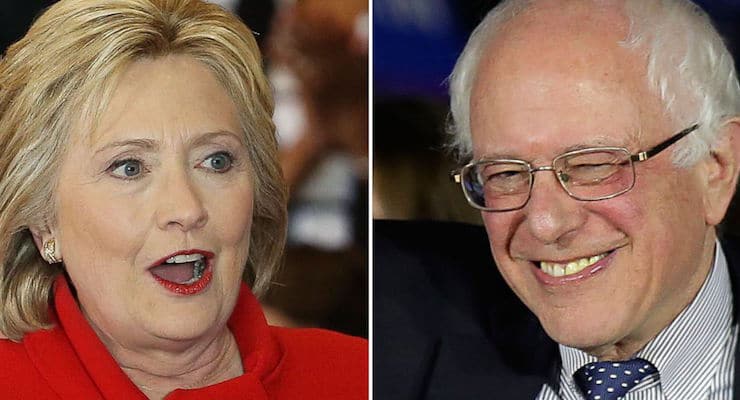John Stossel Hosts Libertarian Presidential Forum
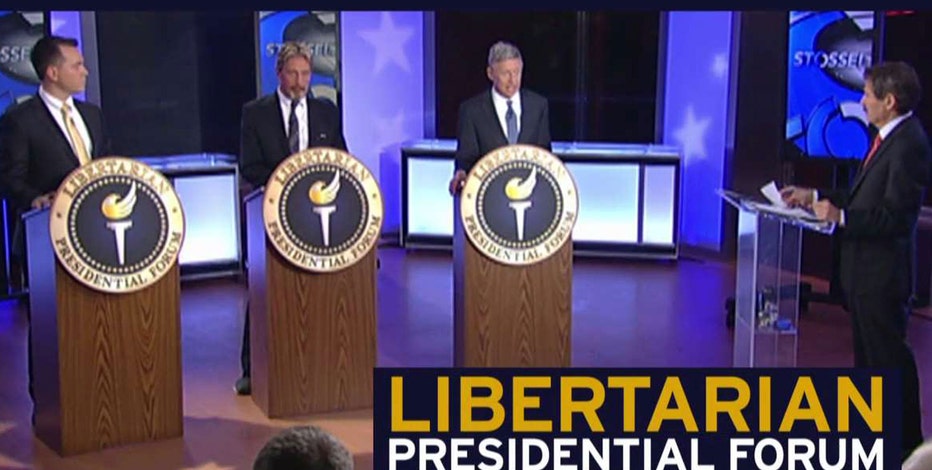
Libertarian presidential candidates Gary Johnson, John McAfee and Austin Petersen discuss the top issues concerning voters. (Photo: FOX Business Network)
“Should a Jewish baker be forced to bake a cake for a Nazi wedding?”
I asked that strange but important question during last week’s debate between three Libertarian presidential candidates. You can see the second hour of that debate Friday, on my Fox Business Network TV show.
If you’re disappointed by Democrats’ and Republicans’ eagerness to limit your freedom, I urge you to check out the libertarians.
Presidential candidate Austin Petersen, founder of LibertarianRepublic.com, says individuals should be free to discriminate — for example, refuse to bake a wedding cake for a gay couple if gay marriage violates their beliefs.
Libertarian presidential candidate, and former New Mexico governor, Gary Johnson, wasn’t willing to go that far. It’s a reminder libertarians don’t always see eye to eye.
“If we discriminate on the basis of religion,” said Johnson, “you’re going to find a whole class of people discriminated against. … So it’s harm to others.”
Many people agree, but the debate over the Nazi wedding cake is a reminder that laws with good intentions often have bad consequences. If sellers can’t decide to whom they will sell, they may be forced to participate in activities they consider immoral.
Without freedom, people can’t reveal their true preferences and show us where they stand. I’d like to know which businesses bigots run.
Petersen was quick to add that he would never buy anything from a shop that refused to serve gays. “I would stand outside these people’s store and I would encourage a boycott.”
Most libertarians argue that it isn’t government’s job to tell people how to conduct private business. As Petersen put it, “Government is not supposed to make us into better people. That’s not what the United States was founded on. The United States was founded so that we could be whatever we wanted.”
Some of us may want to be jerks. As long as we do it with our own bodies and our own property, that’s part of freedom, say most libertarians.
The other candidate in the forum, software entrepreneur John McAfee, found a middle ground. He pointed out that whether we allow a business to discriminate may depend on whether consumers have options, as consumers usually do.
“If you’re the only baker in town, it may be a problem,” he said, but normally, “no one is forcing you to buy anything.”
The free market gives people choices. There are lots of bakers, but just one government. That’s why government must never discriminate, but if private businesses cannot, does “private” have real meaning? What about freedom of association?
Most businesses eagerly take money from gay customers — or Muslims or transgender people or people of a different race. A few won’t. That’s part of the diversity of a free country, and a beauty of a free market is that customers punish bigoted businesses.
All three Libertarian Party candidates understand that. But tune in and see what you think.
Petersen was the only candidate of the three to call himself “pro-life.” But on abortion, as with cakes, he wants people to find solutions without involving government.
“The president has no authority to enact laws on abortion,” he said. If Petersen were president, he said he would “try and find every non-coercive measure that we can to end abortion. And there are options. Ending the federal war on drugs would allow women to purchase birth control over the counter.”
But like his libertarian opponents, he would not send government in to make these decisions. Gov. Johnson said, “I do not think it is the federal government’s job or the state government’s job to interfere in this process.” McAfee said, “A woman’s right to her own body is one of the fundamental issues in this country.”
Sometimes libertarians sound like conservatives, sometimes like liberals. Unlike conservatives and liberals, however, libertarians stick to the idea of keeping government out of our business. Government is force, and life is better when people are left free to make their own choices.
If we didn’t try to use government to boss each other around, think how much more pleasant, and free, life would be.
